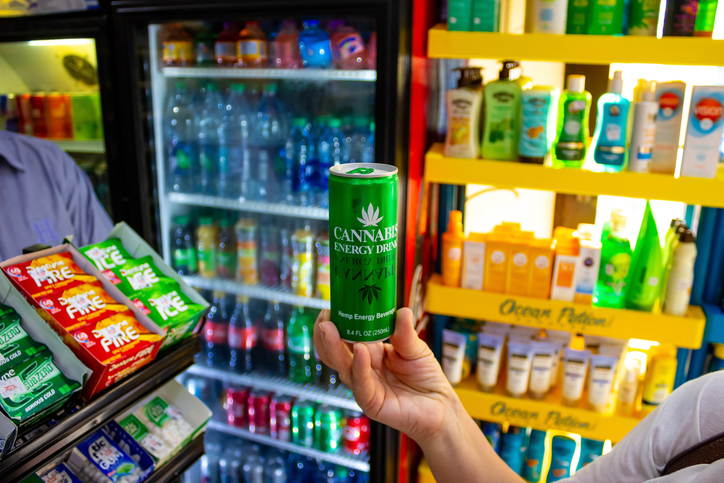From Port Matilda to Philadelphia to across the United States, the sale and consumption of THC beverages is on the rise. While it’s younger people, mainly Millennials and Gen Zers that consume these cannabis-infused seltzer and alcohol-free cocktails, more and more diverse groups of people are noticing this new and intoxicating method of consuming THC.
What Are THC Beverages and What Makes Them Attractive?
There are two well-known active compounds of the marijuana plant: tetrahydrocannabinol, commonly referred to as THC, and cannabidiol—which is almost always called CBD. THC creates a potent psychoactive high and shows up on a drug test for marijuana. CBD doesn’t create a high comparable to THC and does not appear on drug screenings. However, it can cause sleepiness, mellowness, and overall sensations of calm.
Marijuana drinks are infused with THC—the more powerful and intoxicating cannabis of the two compounds—and American consumers seem more than willing to try them. People are playing with the idea of replacing alcoholic beverages with these THC counterparts. However, doctors and cannabis researchers know that marijuana beverages come with their own set of risks and an even longer list of questions.
The Dangers of Current THC Beverage Marketing
Companies know that cannabis is low-hanging fruit for healthy alternative substance advertising. THC, which rarely produces hangover-like symptoms akin to drinking or other recreational drugs, may seem like it sells itself as a natural substitute for drinking.
THC also provides an added marketing benefit of having fewer calories than a martini or a shot of liquor. There’s also an easily accessible natural lifestyle element to the branding of THC products. Being plant-based, people can easily see marijuana as organic and therefore healthy.
Due to the powerful marketing behind THC and its beverage form, experts now worry that products like weed drinks are becoming popular at a rate faster than health research can keep up with. This leaves huge gaps in our ability to answer questions about how best to consume these drinks and what impacts they may have on the brain and body—especially for people in residential addiction treatment programs.
People in recovery from alcoholism who drink THC beverages aren’t simply switching from booze to vitamins, as some people might paint it. They’re substituting one psychoactive substance for another. If you or a loved one is in recovery and you’re thinking about trying THC beverages, we would recommend not to. At St. Joseph, we advocate complete abstinence from substances for our clients who are in addiction recovery. Even something as seemingly benign as a THC beverage can lead to relapse.
Risks That THC Beverages Pose in Recovery
Because THC beverages are so new, consumers and researchers alike are unsure about proper dosage methods and labeling, the addiction potential for liquid THC, unknown medical and mental health effects, and physical symptoms.
THC Beverage Dosage Dangers
- Standard serving sizes for these drinks are often unclear
- The typical therapeutic dose is 5mg of THC, but many drinks can contain up to 100mg
- Users may not understand label measurements
- Quick absorption can lead to overconsumption
Rapid Onset and Addiction Potential in THC Drinks
- Effects can begin within 10-15 minutes, and this speed can increase addiction potential
- The high can be more intense than other cannabis products, making it more addictive
- Effects are less predictable than alcohol
- Cross-use with alcohol can lead to dangerous levels of impairment
Medical Concerns and Unknowns
- These drinks can facilitate the development of psychosis symptoms, as high doses of THC can trigger psychotic episodes in susceptible individuals
- In cases of THC overconsumption, your heart rate and blood pressure can rise
- Severe anxiety and paranoia can result if THC concentration is too high
- People may experience nausea and vomiting from THC beverages
Get Help For Substance Use Disorders in Port Matilda, PA
Whether you’re dealing with a substitute addiction (replacing one substance with another or with an addictive behavior), recovering from alcoholism, or struggling with mental health concerns, St. Joseph Institute is here for you.
If you feel that you or a loved one suffers from THC addiction or if you’re simply hitting a roadblock in your sobriety and need more insight on how to cope, you can visit our location today or read through our different blog resources. We provide tailored treatment options and support systems for our patients. Contact us today to learn more.


